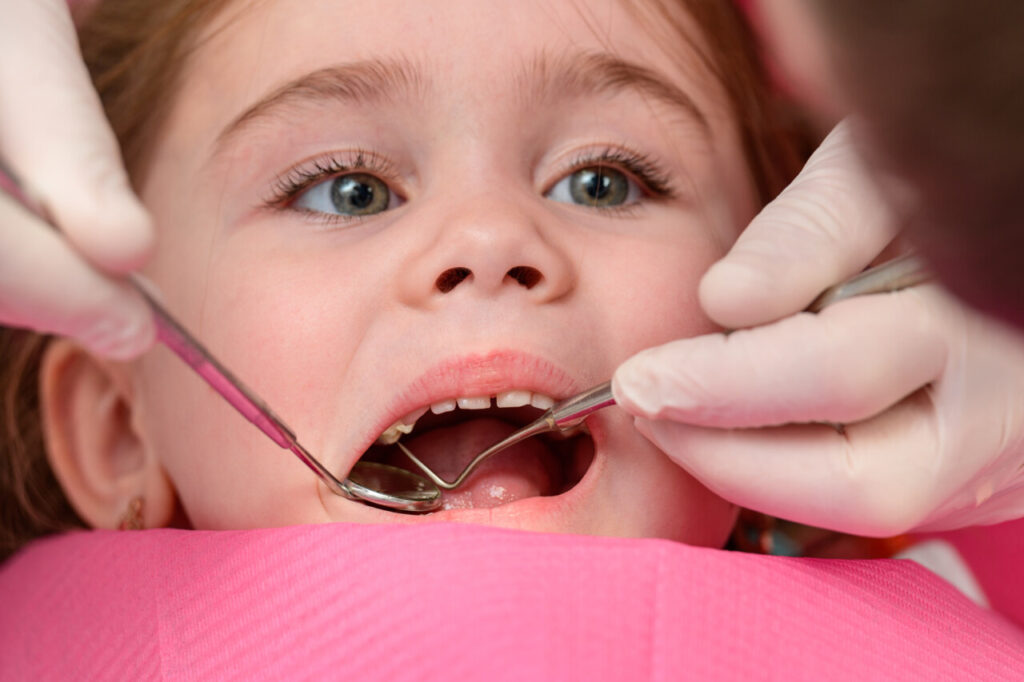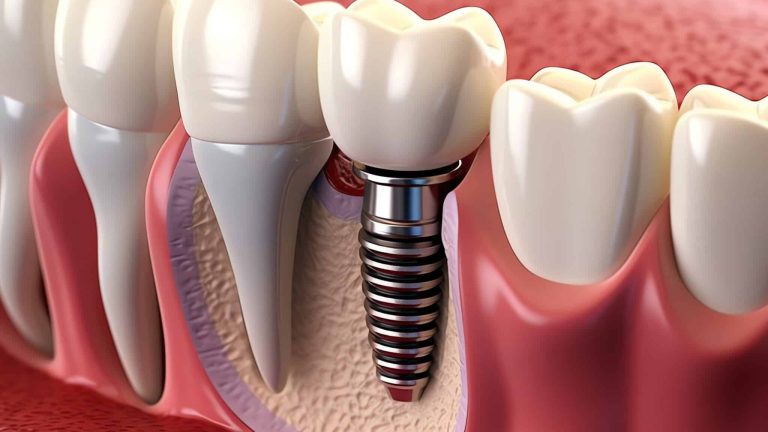A child’s smile reflects their health and well-being. As parents, we want to ensure our children grow up healthy and happy, and that includes taking care of their oral health from day one. Pediatric dentistry, a specialty within dentistry, plays a crucial role in this process, helping to keep children’s teeth healthy and creating good habits that will last a lifetime.
In this article, we will explore how pediatric dentists work to prevent dental problems in young children, when to take your child to the dentist for the first time, and why caring for baby teeth is so important for your child’s future dental health.
What is Pediatric Dentistry and Why is it So Important?

Pediatric dentistry is the branch of dentistry responsible for the dental health of children, from birth through adolescence. Pediatric dentists are specialized in caring for the teeth and gums of young patients, using techniques that adapt to both their anatomy and emotional sensitivity. They not only diagnose and treat problems such as cavities or dental malformations but also play a key role in prevention, educating parents and children on how to properly care for their teeth from an early age.
The Role of the Pediatric Dentist
The pediatric dentist doesn’t just fix cavities or dental issues but focuses primarily on prevention. Why is this important? Because establishing good dental habits early on can prevent more serious problems in the future, such as malocclusions or gum diseases. Additionally, working with a pediatric dentist early in life helps children become familiar with the dental environment, reducing the fear that many tend to develop toward the dentist.
When Should I Take My Child to the Pediatric Dentist for the First Time?
Many parents wonder when the right time is to take their child to the dentist. The first visit to the pediatric dentist should occur when the first tooth appears or before their first birthday. This may seem early, but starting dental care early helps establish a healthy routine and detect potential issues at an early stage.
Some parents tend to wait until their child has more teeth or if they experience discomfort, but preventive care is key. It’s not just about treating problems, but preventing them from occurring. Baby teeth may seem temporary, but they play a fundamental role in chewing, speech development, and facial bone growth. Moreover, they serve as “guides” for the permanent teeth to follow.
How Does a Pediatric Dentist Work?
A pediatric dentist’s work goes beyond fixing teeth. Their approach is comprehensive: from prevention to education and, in some cases, specialized treatments. Here are some key aspects of their work:
1. Prevention
The pediatric dentist conducts regular check-ups to detect any potential dental issues early. These check-ups allow for the identification of cavities, dental growth anomalies, or gum issues before they worsen. Additionally, during these visits, pediatric dentists often apply preventive treatments such as fluoride and dental sealants.
2. Education for Parents and Children
An essential aspect of pediatric dentistry is education. Parents play a fundamental role in their children’s dental health, and the pediatric dentist ensures they learn proper brushing techniques, how to use dental floss correctly, and the importance of limiting sugars in the diet to prevent cavities. Additionally, children begin to understand the importance of dental care from an early age, creating habits that will last a lifetime.
3. Personalized Treatments
When problems arise, the pediatric dentist is prepared to offer treatments tailored to children. Some common treatments include dental cleanings, fluoride applications, and in more complex cases, preventive orthodontic treatments or restorations. In some cases, if the child is very young or anxious, mild sedation techniques may be used to make the procedure as non-invasive as possible.
Why is it Important to Take Care of Baby Teeth?

Baby teeth, though temporary, are essential for the child’s oral and overall development. These teeth help children learn to chew properly, develop their speech, and maintain the necessary space for the eruption of permanent teeth. If a baby tooth is lost too early, nearby teeth can shift into its place, which can cause alignment issues in the permanent teeth and lead to the need for orthodontic treatment in the future.
Early care of baby teeth also prevents pain and infections that could affect the child’s overall well-being. Children with dental problems often have trouble eating, which can negatively impact their nutrition and development.
First Visits to the Pediatric Dentist: What to Expect?
During the first visit to the pediatric dentist, they will conduct a thorough examination of your child’s teeth, gums, and jaw to ensure everything is developing correctly. They will also check on pacifier or bottle use, as prolonged use of these can negatively affect dental development if not discontinued in time. Additionally, the pediatric dentist will provide parents with guidance on how to brush their child’s teeth, when to use dental floss, and which foods to avoid to prevent cavities.
It’s important that the first dental visits are positive. A friendly, colorful, and relaxing environment, like the one we offer at Clínicas La Guardia, can help reduce the fear many children tend to have of the dentist.
Common Treatments in Pediatric Dentistry
The pediatric dentist offers a wide range of treatments specifically designed for children, some of which include:
- Dental cleanings: Regular cleanings are essential for keeping teeth healthy and preventing cavities.
- Dental sealants: This treatment involves applying a protective coating on the chewing surfaces of teeth to prevent cavities.
- Fluoride treatments: Fluoride application strengthens tooth enamel and protects teeth against cavities.
- Preventive orthodontics: If the pediatric dentist detects alignment or bite issues, they may refer the child to a pediatric orthodontist to begin early corrective treatment.
Parent Education: The Role of the Pediatric Dentist in Prevention
Education is one of the pillars of pediatric dentistry. Pediatric dentists not only treat children but also play an active role in teaching parents how to care for their children’s teeth. From the importance of daily brushing and fluoride use to nutrition tips and cavity prevention, pediatric dentists ensure parents have the information needed to maintain their children’s oral health.
Additionally, the pediatric dentist educates parents about the impact of certain habits on children’s dental health, such as prolonged bottle or pacifier use, which can lead to malformations in the teeth and jaw if not discontinued in time.
Conclusion: The Value of Pediatric Dentistry for Your Child’s Future
Pediatric dentistry goes beyond treating dental problems. It focuses on building a solid foundation of healthy habits that will accompany children throughout their lives. With regular visits to the pediatric dentist and parental support, children can learn to care for their teeth from a young age, avoiding problems that could affect their oral and general health in the future.
At Clínicas La Guardia, we understand how important it is for parents to ensure their children grow up with healthy, happy smiles. Our team of pediatric dentists is ready to support you every step of the way, providing a warm, friendly, and professional environment for your little ones.




